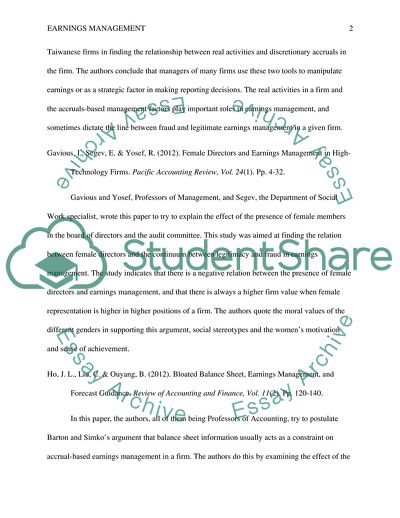Cite this document
(Earnings Management: The Continuum From Legitimacy to Fraud Research Paper - 1, n.d.)
Earnings Management: The Continuum From Legitimacy to Fraud Research Paper - 1. https://studentshare.org/finance-accounting/1777602-earnings-management-the-continuum-from-legitimacy-to-fraud
Earnings Management: The Continuum From Legitimacy to Fraud Research Paper - 1. https://studentshare.org/finance-accounting/1777602-earnings-management-the-continuum-from-legitimacy-to-fraud
(Earnings Management: The Continuum From Legitimacy to Fraud Research Paper - 1)
Earnings Management: The Continuum From Legitimacy to Fraud Research Paper - 1. https://studentshare.org/finance-accounting/1777602-earnings-management-the-continuum-from-legitimacy-to-fraud.
Earnings Management: The Continuum From Legitimacy to Fraud Research Paper - 1. https://studentshare.org/finance-accounting/1777602-earnings-management-the-continuum-from-legitimacy-to-fraud.
“Earnings Management: The Continuum From Legitimacy to Fraud Research Paper - 1”. https://studentshare.org/finance-accounting/1777602-earnings-management-the-continuum-from-legitimacy-to-fraud.


